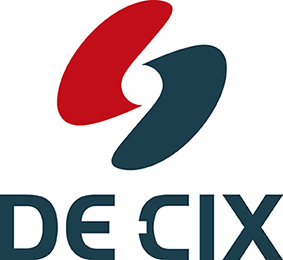Re-evaluating Location Strategies for the Digital Economy: Why the Iberian Peninsula is a Prime Choice
Where once the choice of headquarters locations was limited to a few historically strategic cities, new regions and hubs are offering strong economic and geographical advantages. Theresa Bobis from DE-CIX, on why companies should be putting Iberia at the top of the list for location strategies in 2025.

© Vadym Ivanchenko | istockphoto.com
In today’s highly interconnected global economy, businesses are needing to reevaluate their location strategies to optimize efficiency, manage costs, and strengthen resilience. Several factors come into play: production costs, supply chain logistics, access to talent, and favorable tax policies. However, in the digital age, one critical aspect stands out – the quality and reach of digital infrastructure.
As technology continues to reshape business operations, the ability to connect quickly to external networks, such as cloud services and applications, is essential. The speed and reliability of data exchange between locations, or with partners or service providers, are increasingly influenced by the proximity to high-performance digital infrastructure. Companies must therefore give careful consideration to the digital landscape when choosing where to establish or relocate their operations.
The Iberian Peninsula, encompassing Spain and Portugal, is emerging as a highly attractive option for businesses looking for new headquarters, secondary locations, or even data centers. While historically overshadowed by the well-established digital hubs of Frankfurt, London, Amsterdam, and Paris (the FLAP markets), the recently published study, The Iberian Peninsula: A next-generation regional mega hub, shows that Iberia is now positioning itself as a key player in the digital world, offering a mix of economic, infrastructural, and geographical benefits.
The rise of Iberian digital hubs
What sets the Iberian Peninsula apart is its unique geographical location. Straddling the Atlantic and Mediterranean, Iberia is a gateway between continents, with extensive subsea cable infrastructure connecting Europe to North and South America, Africa, the Middle East, and beyond. It boasts 35 international submarine cable systems and 20 landing stations, providing exceptional global latency. For example, connections from Lisbon to Washington D.C. have latency as low as 60 milliseconds, while connections to Dubai take just 70 milliseconds.
These factors make the Iberian Peninsula a critical point for optimizing global data traffic. Whether facilitating north-south, east-west, south-south, or transcontinental data corridors, Iberia’s centrality enhances performance and offers a strategic alternative to existing data routes.
In recent years, cities like Madrid, Lisbon, and Barcelona have developed into digital hubs, boasting an impressive array of data centers, cloud infrastructure, and network connectivity. These cities bring together dense digital ecosystems that enhance connectivity and offer businesses optimal conditions for digital operations.
Business potential and market growth
Beyond its role as a global digital gateway, Iberia has become an increasingly attractive market in its own right. With nearly 60 million people, the region has widespread 5G deployment, supporting modern business use cases and connectivity needs. The data center market in Iberia is flourishing, with more than 100 operational facilities and many more in development. The region also boasts strong terrestrial connectivity, linking Iberia to the rest of Europe and further enhancing its business appeal.
The presence of top-tier educational institutions provides a steady pipeline of skilled workers, while the region’s favorable climate and lifestyle contribute to talent retention. Iberia’s well-developed transportation infrastructure, including high-speed trains and major ports, ensures excellent logistics, with the Madrid-Barajas Airport alone capable of handling up to 70 million passengers annually.
Cloud providers have taken note of Iberia’s growing importance. Over the past few years, the region has attracted multi-billion Euro investments, with 2024 seeing even more announcements from tech giants. Madrid, in particular, has become a magnet for multinational corporations, with more than 65% of Spanish multinationals and over 7,000 foreign companies basing their headquarters there. It ranks as one of the top five European cities for multinational operations, driven by its economic diversity and growth potential.
A distributed regional mega hub
The Iberian Peninsula offers more than just digital connectivity; it represents a distributed regional mega hub that combines the strengths of multiple cities and regions. Alongside the core hubs of Madrid, Lisbon, and Barcelona, secondary infrastructure markets like Bilbao, Valencia, Porto, Malaga, and Sines play vital roles in the region’s digital ecosystem. Together, this regional mega-hub rivals the traditional hubs in terms of its digital ecosystem, and offers a model for infrastructure of the future: dense but geographically distributed, able to bring content and services closer to end-users, wherever they are.
This dynamic cluster of hubs gives businesses greater flexibility and redundancy, ensuring resilience in their global operations. Whether Iberia stands as a company’s primary location or a secondary location for redundancy purposes, it is well positioned to serve Southern, Western, and Central Europe. Latency from Madrid to Paris is just 17 milliseconds, while connections from Barcelona to Rome are as low as 14 milliseconds. These figures make Iberia a strategic option for improving connectivity across Europe, complementing the traditional FLAP markets.
Optimized cloud connectivity
The Iberian Peninsula is also home to a thriving interconnection market, with 13 Internet Exchanges (IXs) distributed mainly across Madrid, Lisbon, and Barcelona. These IXs enable seamless data exchange and optimization of traffic flows, connecting businesses to regional and global networks. Since 2016, the aggregated number of ASNs (networks) connected to these IXs has surged by over 1200%, underscoring the region’s growing importance in global data flows.
DE-CIX, a key player in the interconnection space, has established a strong presence across Southern Europe. Its IXs in Madrid, Lisbon, and Barcelona are interconnected with one another, ensuring harmonized infrastructure across the peninsula. The IXs also connect to networks across Europe, North and South America, Africa, and the Middle East, ensuring best-in-class connectivity for businesses operating in Iberia. DE-CIX’s platforms also offer direct connectivity to cloud service providers, including low-latency access to local regions and remote access to further regions for redundancy purposes or to those cloud providers not yet present in Iberia.
Supporting sustainability goals
Another key advantage of the Iberian Peninsula is its leadership in renewable energy. Both Spain and Portugal are at the forefront of green energy production, utilizing hydroelectric, solar, and wind power. This makes Iberia an ideal location for businesses looking to power their data centers with renewable energy, aligning their operations with sustainability goals.
For instance, the city of Sines in Portugal is currently building what will be Europe’s largest renewable energy data center complex. Power purchase agreements (PPAs) are being signed by numerous data center operators to ensure that their facilities run on 100% renewable energy, making the region a hub for sustainable, carbon-free digital operations. We anticipate that the Iberian Peninsula can become a European hub for carbon-neutral data processing, ideal for use cases – like High Performance Computing (HPC) for AI training and research purposes – that are not so dependent on ultra-low latency.
A strategic choice for global enterprises
In conclusion, the Iberian Peninsula offers a unique combination of digital connectivity, business infrastructure, and sustainability advantages. Its position as a central node in global data traffic, coupled with its rapidly growing digital hubs, makes it a prime location for businesses seeking to optimize their operations, enhance connectivity resilience, and align with green energy initiatives.
As companies reassess their location strategies, the Iberian Peninsula deserves serious consideration. Its ability to deliver on multiple fronts – from digital infrastructure to talent availability, and from market potential to sustainability – makes it a compelling choice for forward-thinking enterprises.
Theresa Bobis is Regional Director Southern Europe at DE-CIX, responsible for the DE-CIX Internet Exchanges in Marseille, Palermo, Lisbon, Barcelona, and Madrid. In 2021, she was nominated by Capacity Magazine as one of 20 Women to Watch.





